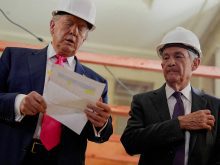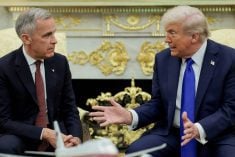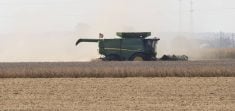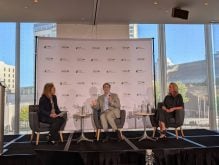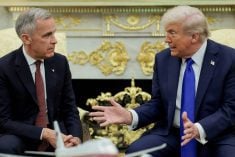India has offered to partially open up its poultry and dairy markets to win a limited trade deal during U.S. President Donald Trump’s first official visit to the country this month, people familiar with the protracted talks say.
India, the world’s largest milk-producing nation, has traditionally restricted dairy imports to protect the livelihoods of 80 million rural households involved in the industry.
But Prime Minister Narendra Modi is trying to pull all the stops for the U.S. president’s Feb. 24-25 visit, aimed at rebuilding bonds between the world’s largest democracies. In 2019, Trump suspended India’s special trade designation that dated back to the 1970s, after Modi put price caps on medical devices, such as cardiac stents and knee implants, and introduced new data localization requirements and e-commerce restrictions.
Read Also

Tie vote derails canola tariff compensation resolution at MCGA
Manitoba Canola Growers Association members were split on whether to push Ottawa for compensation for losses due to Chinese tariffs.
Trump’s trip to India has raised hopes that he would restore some of the country’s U.S. trade preferences, in exchange for tariff reductions and other concessions.
The United States is India’s second-largest trade partner after China, and bilateral goods and services trade climbed to a record $142.6 billion in 2018. The United States had a $23.2 billion goods trade deficit in 2019 with India, its ninth-largest trading partner in goods.
India has offered to allow imports of U.S. chicken legs, turkey and produce such as blueberries and cherries, Indian government sources said, and has offered to cut tariffs on chicken legs from 100 per cent to 25 per cent. U.S. negotiators want that tariff cut to 10 per cent.
The Modi government is also offering to open up India’s dairy market, but with quotas and a five per cent tariff on some products, the sources said. Dairy imports will need a certificate they are not derived from animals that have consumed feeds that include internal organs, blood meal or tissues of ruminants.


